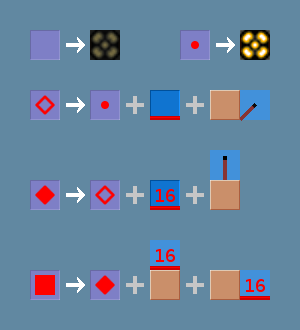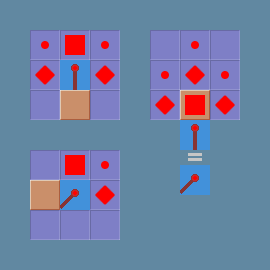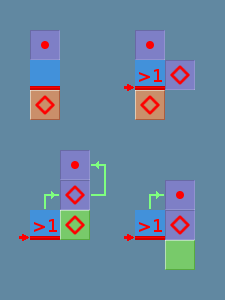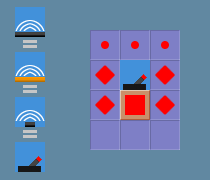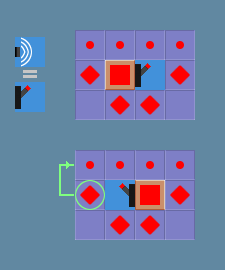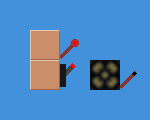Difference between revisions of "Redstone circuitry"
Doomquokka (talk | contribs) m (Categorized) |
|||
| Line 5: | Line 5: | ||
====Downward Signals==== | ====Downward Signals==== | ||
A redstone torch placed on the side of a block does NOT power the block below it as in Minecraft. | A redstone torch placed on the side of a block does NOT power the block below it as in Minecraft. | ||
| − | To get downward signals in Mine Blocks without moving parts, you can use the following arrangement.[[File:Rs_down.png]] | + | To get downward signals in Mine Blocks without moving parts, you can use the following arrangement.<br> [[File:Rs_down.png]] |
==Basic Power configurations== | ==Basic Power configurations== | ||
Revision as of 15:19, 18 October 2017
In general, Mine Blocks redstone circuits are assumed to behave like 2 dimensional Minecraft circuits, and Minecraft guides are applicable where this wiki is deficient.
This page is provided for Mine Blocks-specific details, special cases, and links to related topics.
Contents
Exceptions
Downward Signals
A redstone torch placed on the side of a block does NOT power the block below it as in Minecraft.
To get downward signals in Mine Blocks without moving parts, you can use the following arrangement.
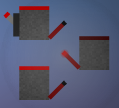
Basic Power configurations
Legend
Symbols for significant power levels with distinct effects.
Torch
Dust
The green blocks act as relays when present, causing the target tile states to be updated according to the dust state, otherwise they stay at their last state. The left version overrides the right.
Top-mounted
Side-mounted
The circled tile remains charged after power is removed, and activates the tile above it, unless explicitly depowered by other means.
Anomalies
The above scheme is simplified for practical use, but there are configurations that it can't describe.
Other Issues
The block updating order and internal states are not described here, but can have unexpected and temporary side-effects. It is easy to create "phantom" power in ways other than shown above. An off-switch attached to such positions then removed is a reliable remedy unless there is an active source causing it. It is also common for tiles that should be powered to remain inactive, or be made inactive by touching unpowered dust for example. The remedy is to force the update to work differently either by resetting power or partial rebuilding.
